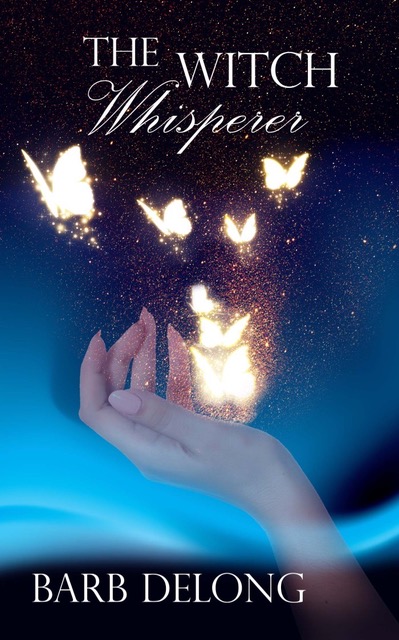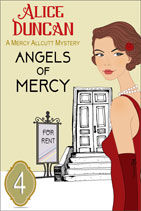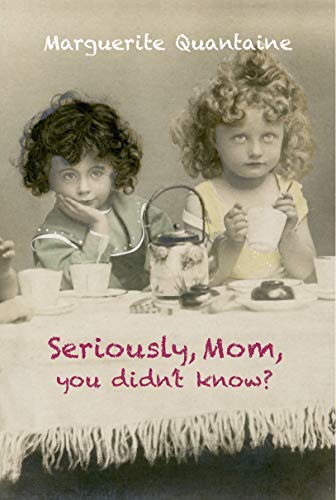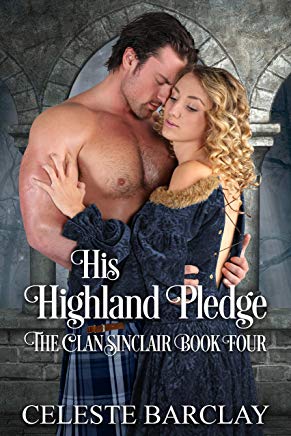Do You Triberr? #Blogging Promotion Tips
January 17, 2016 by Linda McLaughlin in category The Romance Journey by Linda Mclaughlin tagged as blogging, promotion, Triberr, TwitterA lot of friends make comments to me like, “You’re always on Twitter.” Well, the truth is, I’m not really on Twitter all the time. My Twitter feed is mostly the result of me sharing the blog posts of fellow tribe mates on a site called Triberr.
If you’re not familiar with Triberr.com, I’ll try to explain, though there are people who can do a better job of it. Triberr is a website where bloggers band together in tribes to share each other’s blog posts. Once you get your blog registered and join a tribe or two, your posts automatically appear in the Tribal Streams of your tribe mates where they can share your post on their Twitter, LinkedIn or Facebook feeds. What it means is that your blog posts will get tweeted a lot more than you could manage on your own. (Most people primarily use Twitter for their feeds, as Triberr can quickly overwhelm a Facebook timeline, and I don’t recommend doing so.)
So how do you get started?
First step is to set up your account, which you can do using your Twitter user name and password. This is what my profile looks like:
As you can see, I’m now in 7 tribes, with a total of 198 Tribemates and a total reach of 1 million. And I’ve passed on invitations to join additional tribes. This is all I can handle at the moment.
Once you have your profile set up, go to Account >> Settings >> My Blogs to add your blogs. For this you will need to know the URL for your blog’s RSS feed. RSS stands for Really Simple Syndication and it’s the way your blog gets shared over the Internet. If you don’t have one, you can easily acquire an RSS feed address using feedburner.com and other similar services. Once you’ve added the information, your account settings look like this:
If you find that Triberr isn’t picking up your blog posts in a timely fashion, you can go to this page and click on Check Feed to update the site. The blue button on the left is to Assign a Tribe to your blog. If you have more than one blog, you can only assign one to each blog. Before I consolidated my websites and blogs into one site, I had to split up my tribes by blog. Now the Reading Room Blog goes to all my tribes and the old Flights of Fancy has none, though I haven’t deleted it, just in case I ever need it again. Yes, I even hoard blogs.
Next step is to add your Social Networks to your account. I chose to only use Twitter, but Facebook and LinkedIn are also possible.
How do you join a tribe?
Triberr says:
Start by following the tribe. As a follower, you’ll be able to participate in the community and share member’s posts.
After a week as a follow we’ll email the Chief to let them how much content you’ve shared.
The Chief can choose to promote you to a full fledged member, then your content will be shared by the rest of the tribe.
But first you have to find the tribe. You can try searching at Triberr, but it really helps if you know the name of a tribe or a tribe sponsor. Frankly, I haven’t found Triberr’s search function to be very helpful.
You might start with our Southern California Writers of Romance tribe, of which I happen to be the chief, and which happens to be open to new members. If a tribe is filled, the page will advise you of that fact. You can still Follow the tribe, and if an opening comes up, it will usually go to someone who has been following the tribe and sharing their posts.
This gives you an idea of what a tribal stream looks like. Each blog post appears with the avatar of the blogger at the top. Use the green Share button to add a particular post to your Twitter feed. You can schedule posts to go out as often as every ten minutes or as slowly as every 24 hours. Something in between is probably best. If you hover your cursor over the blogger’s avatar, Triberr will tell you how many posts that blogger shared and wrote in the last week, including whether or not that person shared your posts. If someone isn’t sharing regularly, you are not obligated to share their posts. You can use the little blue Hide button to make their post disappear from your stream. If someone is really bad about not sharing, hit the Mute button and their posts won’t appear in your stream until you undo the Mute. (This is on your Tribes Overview page.)
I hope this explanation is helpful. Please let me know if you have any questions in the comments section below.
Linda McLaughlin
Website/Blog: http://lindalyndi.com
Twitter: @LyndiLamont
So Cal Bloggers: Are You on Triberr? #blogging #triberr
May 17, 2015 by Linda McLaughlin in category The Romance Journey by Linda Mclaughlin tagged as blogging, Linda McLaughlin, Lyndi Lamont, Triberr, TwitterAt a recent meeting, a member said to me, “You’re always on Twitter.” Well, the truth is, I’m not. But I’m on Triberr and I share regularly.
For those who aren’t familiar with Triberr, the “home of influencers,” let me explain. Triberr is a platform for bloggers to come together in tribes to share their posts.
The way Triberr works is every member has a tribal stream of blog posts that they can choose to share on Twitter and/or Facebook. If you have an active stream, it’s best to only share on Twitter, as Triberr can overwhelm your Facebook feed pretty quickly. It’s very cool when you see your latest blog post being shared all over the Twitterverse.
You start by setting up a Triberr account and then following the tribes that interest you.
For some folks, the most confusing part of being on Triberr is getting your blog set up. Author Tara Quan has an informative video on how to do that:
The other important thing about Triberr is that it only works if everyone shares. So please be courteous and share other people’s blog posts. There is a way for them to mute you or hide your posts if you don’t share.
If you are a member of Marketing for Romance Writers, you might want to join one of their tribes. I’m on two.
Last fall, right before my life fell apart, I became the tribal “chief” of the Southern California Writers of Romance tribe started by Skylar Kade. The tribe is about half full, so if you have a blog and want to join, please let me know.
Linda McLaughlin aka Lyndi Lamont
Email: lyndilamont@gmail.com
Website: http://lindalyndi.com
Twitter: @LyndiLamont
0 0 Read moreMy Debut at Lady Jane’s Salon OC
October 16, 2014 by Linda McLaughlin in category The Romance Journey by Linda Mclaughlin tagged as Alina K. Field, Anaheim, Beth Yarnell, Debra Holland, Gypsy Den, historical romance, Lady Jane's Salon OC, Linda McLaughlin, Lyndi Lamont, romance novels, Sylvie FoxThis month I made my debut at Lady Jane’s Salon OC, reading from my historical romance, Rogue’s Hostage. I attended for the first time last month and enjoyed it so much, I agreed to read in October. I’m just glad the microphone was working Monday night.
Alina K. Field started us off with an excerpt from her latest Regency romance, Bella’s Band, which featured a visit to a brother by an innocent, gently bred young lady. Fortunately, the hero is there to rescue her from the unwanted attentions of a very drunk customer.
Debra Holland read a sweetly emotional first kiss scene from her upcoming Western romance, Glorious Montana Sky. Stealing a kiss is a daring move for an upright widowed minister.
And Sylvie Fox entertained us with a risque excerpt from her new release, Don’t Judge Me, about a young woman who designs porn websites who meets a sexy comedian who does a mean strip tease. Are you interested yet?
I went last with a dramatic scene from the first chapter of my historical romance, Rogue’s Hostage, set during the French & Indian War, and inspired by the Daniel Day Lewis movie version of The Last of the Mohicans.
Lady Jane’s Salon started in New York City where the first salon was founded in February 2009 by romance authors Hope Tarr, Leanna Renee Hieber, Maya Rodale, and book blogger, Ron Hogan. There are now eight satellite salons: Denver, CO; Raleigh-Durham, NC; Naperville, IL (Chicago area), Grenville, SC, Phoenix, AZ, Silver Spring, MD, Wilkes-Barre/Scranton, PA and Orange County, CA. Every Lady Jane’s Salon® charges an admission fee of $5 OR one gently used romance novel, which is donated to a local charity..
A big thanks is owed to Beth Yarnell for founding our local salon, and also to Sylvie Fox who produces the monthly podcasts. You can listen to the podcasts at the website or by downloading them at iTunes. I’ve downloaded the past podcasts and am enjoying listening to them.
Lady Jane’s OC meets the second Monday of every month from 7-9PM at the
Gypsy Den Alt Cafe, 211 W Center Street Promenade, Anaheim, CA 92805.
Phone: (714) 956-4400
The atmosphere is eclectic and the food is delicious. I tried the bread pudding this month. Yum.
 Next month’s meeting, Nov. 10, features Elizabeth Boyle, Deborah Mullins, Beth Yarnell and Felice Fox. Come join us. I can guarantee it will be a fun evening. And if you’re thinking of signing up to read, don’t be afraid. The crowd is friendly and supportive.
Next month’s meeting, Nov. 10, features Elizabeth Boyle, Deborah Mullins, Beth Yarnell and Felice Fox. Come join us. I can guarantee it will be a fun evening. And if you’re thinking of signing up to read, don’t be afraid. The crowd is friendly and supportive.
I’ve been busy at my blog with my Paranormal Blogfest. Check it out to read the posts and enter the Rafflecopter for a Halloween gift basket. Our own Kitty Bucholtz will be there tomorrow talking about her love for superheroes, and Susan Squires joins me on Oct. 29 for a post about her new release, Night Magic.
Linda McLaughlin / Lyndi Lamont
Website: http://lindalyndi.com
Reading Room Blog: http://lindalyndi.com/reading-room-blog/
The Law Is a Ass: Women’s History and the Law @LyndiLamont
September 16, 2014 by Lyndi Lamont in category The Romance Journey by Linda Mclaughlin tagged as divorce, England, history, Linda McLaughlin, marriage, research, women's history“If the law supposes that,” said Mr. Bumble,… “the law is a ass—a idiot. If that’s the eye of the law, the law is a bachelor; and the worst I wish the law is that his eye may be opened by experience—by experience.”
The quote above is generally attributed to Charles Dickens, Oliver Twist, published serially 1837-39, per Bartleby though Dickens may have copied it from a 17th century play, Revenge for Honour by George Chapman. (See http://www.phrases.org.uk/meanings/the-law-is-an-ass.html) Whatever the origin of the phrase, it makes a fair point. (The word ass, of course, refers to a donkey.)
Nineteenth-century women were likely to agree with Mr. Bumble, when one considers the treatment of women under the laws of the period. I covered a bit of this during my recent talk on Herstory at Orange County RWA in August, though women weren’t the only people treated badly by the law. The nineteenth century saw a number of reform movements, from abolitionism to the fight for women’s suffrage. The latter was kicked off in July 19-20, 1848 in Seneca Falls, N.Y. The first two resolutions passed at the convention concern legal matters:
Resolved, That such laws as conflict, in any way, with the true and substantial happiness of woman, are contrary to the great precept of nature, and of no validity; for this is “superior in obligation to any other.
Resolved, That all laws which prevent woman from occupying such a station in society as her conscience shall dictate, or which place her in a position inferior to that of man, are contrary to the great precept of nature, and therefore of no force or authority.
It wasn’t just that women weren’t allowed to vote, though that was a primary focus for reform. For several centuries, a legal practice called coverture was in place in England and the U.S. whereby a woman gave up all rights when she married. Her husband controlled any money or property she brought to the union. Single women, including widows, could own property and enter into contracts without male approval. Thanks to suffragist activism, laws were passed abolishing this practice in the late 19th century.
Current law is confusing enough, but when you’re writing historical romance, the law can be a veritable minefield of potential blunders. Research your time period and location if legal matters play a part in your plot. What kind of legal system was in place at the time? English common law, the Napoleonic Code, church canonical law? In the U.S., laws vary from state to state, but that isn’t always the case in other countries.
British laws were enforced throughout England and Wales, but didn’t necessarily apply to Scotland. For instance, in the 18th and early 19th centuries, the age of consent for marriage was substantially lower in Scotland than the one-and-twenty years required in England, encouraging couples without parental approval to elope across the border. The Gretna Green marriage is common plot device in Regency romances. The 1753 Marriage Act was also the first law to require a formal ceremony. It also required weddings to take place in the morning, hence the wedding breakfast to follow.
Getting out of a marriage was even more difficult. Prior to the mid-19th century when judicial divorce was authorized, it was extremely difficult if not impossible to get a divorce in Britain. In Regency times, one had to petition Parliament for a divorce. Can you imagine having to ask Congress to agree to let someone divorce? Yikes! Even then it was more like a legal separation than a true divorce. Annulments weren’t necessarily easy to obtain either. A law permitting judicial divorce, the Matrimonial Causes Act, finally passed in 1857.
More information on marriage and divorce laws can be found at these sites:
A Brief History of Marriage: Marriage Laws and Women’s Financial Independence by
Karen Offen
Kelly Hager, “Chipping Away at Coverture: The Matrimonial Causes Act of 1857”
Linda McLaughlin
0 0 Read moreMorality and Honor: Social Mores in Historical Romance
August 17, 2014 by Linda McLaughlin in category The Romance Journey by Linda Mclaughlin tagged as herstory, historical romance, Linda McLaughlin, morality, research, social mores, writingI was overly ambitious while writing my talk for last Saturday’s OCC/RWA meeting on Herstory: Writing and Researching the Historical Novel, so I’m going to excerpt some of the material I had to omit in my monthly blog post. This month, social mores.
 One of the biggest traps historical novelists can fall into is writing historical characters with 21st century mores. And nothing can make the reader want to throw a book across the room quicker. This especially applies to women. The double standard still exists, but it was much greater in previous centuries.
One of the biggest traps historical novelists can fall into is writing historical characters with 21st century mores. And nothing can make the reader want to throw a book across the room quicker. This especially applies to women. The double standard still exists, but it was much greater in previous centuries.War and social unrest have always upset the normal patterns of life, and social mores tend to fall by the wayside during such periods. Still, a historical female character who shows no regard for her reputation isn’t believable unless she’s already a fallen woman and has no reputation to lose. Personally, I don’t necessarily mind a heroine who flaunts society’s rules; I just need to believe that she knows what she is doing and is well motivated in her choices. The woman who doesn’t understand the consequences of her actions strains credibility. Women had a lot more to lose in the not-so-good old days. It’s especially tricky when you have a virginal heroine. People in those days set great store in virginity. But if we’re going to write sensual or erotic historical romance, we need to find a way for our heroines to bypass those restrictions.
Though the concepts may seem rather old-fashioned nowadays, honor and integrity were more important in the past, esp. for men of the upper classes. One of my favorite scenes in Downton Abbey is the one where the Earl of Grantham tries to buy off chauffeur Tom Branson if he will leave Sybil alone. Tom refuses and informs the earl that men in his class are’t the only ones with honor. Point, Tom!
However, morality did tend to vary by class. Upper and middle-class children were taught their manners and the difference between right and wrong while poor kids just tried to survive. In his childrens novel, The Shakespeare Stealer, Gary Blackwood introduces us to Widge, an orphan boy apprenticed to a dishonest clergyman. Dr. Bright teaches Widge a form of shorthand he has developed and then sends the boy to write down other vicar’s sermons. One Sunday, Widge hears Bright deliver one of the sermons he’d copied. At first, Widge doesn’t think too much about it. As he puts it, “As nearly as I could tell, Right was what benefited you, and anything which did you harm was Wrong.”
In George Bernard Shaw’s Pygmalion, the basis for My Fair Lady, Eliza’s father, Alfred P. Doolittle, talks about the undeserving poor and opines on middle class morality.
Morality and honor sometimes require our characters to act against their own best interests, which can be great for conflict.
So how do you know what the social mores of your period were? And how likely were they to be ignored?
See what was going on in the period. As I said, social mores often go out the window in wartime. And history being somewhat cyclical, periods of repression are usually followed by periods of licentiousness, like the English Restoration, a bawdy reaction to the moral restrictions of the preceding Puritan regime of Oliver Cromwell.
Also consider the prevailing religion of the time and location of your book. That will often provide guidance. Moral standards in Puritan New England and Cavalier Virginia during the Colonial period were quite different.
Look for etiquette books for the social niceties. For the Regency period, check out The Mirror of the Graces by A Lady of Distinction, first published in 1811. I have a paperback copy, but it’s available in e-book format format. Google etiquette and your period and you will likely find a lot of choices.
For those who missed the August meeting, I’ve added pages at the Reference Shelf on blog with two of my handouts. Primogeniture still to come.
British Titles: A Brief and Incomplete Guide
Source Books for Historical Writers: A Partial List
Feel free to leave questions and comments below.
Linda McLaughlin / Lyndi Lamont
0 0 Read moreAffiliate Links
A Slice of Orange is an affiliate with some of the booksellers listed on this website, including Barnes & Nobel, Books A Million, iBooks, Kobo, and Smashwords. This means A Slice of Orange may earn a small advertising fee from sales made through the links used on this website. There are reminders of these affiliate links on the pages for individual books.
Search A Slice of Orange
Find a Column
Archives
Featured Books
A SECRET BETWEEN US
They both have pasts they want to leave behind…
More info →ANGELS OF MERCY
It's a warm August morning in 1926 Los Angles . . .
More info →SERIOUSLY, MOM, YOU DIDN’T KNOW?
Life is a silver lining for those of us willing to scrape the surface of adversity.
More info →Newsletter
Contributing Authors
Search A Slice of Orange
Find a Column
Archives
Authors in the Bookstore
- A. E. Decker
- A. J. Scudiere
- A.J. Sidransky
- Abby Collette
- Alanna Lucus
- Albert Marrin
- Alice Duncan
- Alina K. Field
- Alison Green Myers
- Andi Lawrencovna
- Andrew C Raiford
- Angela Pryce
- Aviva Vaughn
- Barbara Ankrum
- Bethlehem Writers Group, LLC
- Carol L. Wright
- Celeste Barclay
- Christina Alexandra
- Christopher D. Ochs
- Claire Davon
- Claire Naden
- Courtnee Turner Hoyle
- Courtney Annicchiarico
- D. Lieber
- Daniel V. Meier Jr.
- Debra Dixon
- Debra H. Goldstein
- Debra Holland
- Dee Ann Palmer
- Denise M. Colby
- Diane Benefiel
- Diane Sismour
- Dianna Sinovic
- DT Krippene
- E.B. Dawson
- Emilie Dallaire
- Emily Brightwell
- Emily PW Murphy
- Fae Rowen
- Faith L. Justice
- Frances Amati
- Geralyn Corcillo
- Glynnis Campbell
- Greg Jolley
- H. O. Charles
- Jaclyn Roché
- Jacqueline Diamond
- Janet Lynn and Will Zeilinger
- Jeff Baird
- Jenna Barwin
- Jenne Kern
- Jennifer D. Bokal
- Jennifer Lyon
- Jerome W. McFadden
- Jill Piscitello
- Jina Bacarr
- Jo A. Hiestand
- Jodi Bogert
- Jolina Petersheim
- Jonathan Maberry
- Joy Allyson
- Judy Duarte
- Justin Murphy
- Justine Davis
- Kat Martin
- Kidd Wadsworth
- Kitty Bucholtz
- Kristy Tate
- Larry Deibert
- Larry Hamilton
- Laura Drake
- Laurie Stevens
- Leslie Knowles
- Li-Ying Lundquist
- Linda Carroll-Bradd
- Linda Lappin
- Linda McLaughlin
- Linda O. Johnston
- Lisa Preston
- Lolo Paige
- Loran Holt
- Lyssa Kay Adams
- Madeline Ash
- Margarita Engle
- Marguerite Quantaine
- Marianne H. Donley
- Mary Castillo
- Maureen Klovers
- Megan Haskell
- Melanie Waterbury
- Melissa Chambers
- Melodie Winawer
- Meriam Wilhelm
- Mikel J. Wilson
- Mindy Neff
- Monica McCabe
- Nancy Brashear
- Neetu Malik
- Nikki Prince
- Once Upon Anthologies
- Paula Gail Benson
- Penny Reid
- Peter Barbour
- Priscilla Oliveras
- R. H. Kohno
- Rachel Hailey
- Ralph Hieb
- Ramcy Diek
- Ransom Stephens
- Rebecca Forster
- Renae Wrich
- Roxy Matthews
- Ryder Hunte Clancy
- Sally Paradysz
- Simone de Muñoz
- Sophie Barnes
- Susan Squires
- T. D. Fox
- Tara C. Allred
- Tara Lain
- Tari Lynn Jewett
- Terri Osburn
- Tracy Reed
- Vera Jane Cook
- Vicki Crum
- Writing Something Romantic
Affiliate Links
A Slice of Orange is an affiliate with some of the booksellers listed on this website, including Barnes & Nobel, Books A Million, iBooks, Kobo, and Smashwords. This means A Slice of Orange may earn a small advertising fee from sales made through the links used on this website. There are reminders of these affiliate links on the pages for individual books.










































